- Home
- Michael Thomas Ford
Jane Goes Batty
Jane Goes Batty Read online
Praise for Jane Bites Back
“Michael Thomas Ford has struck gold.… The plot is inventive and funny, and the story progresses with the kind of light touch that compares favorably to the … Stephenie Meyer Twilight series. Ford manages to strike just the right tone … and consistently delights.”
—Bay Area Reporter
“Hilarious … I thoroughly enjoyed reading this book and know you will too!”
—The Vampire Librarian
“A rollicking good read … Ford is wickedly funny: I cackled my way through half the book, especially the vampire stuff.… I eagerly await Jane Goes Batty.”
—Dirty Laundry
“Ford approvingly cites Seth Grahame-Smith’s Pride and Prejudice and Zombies, but his own mashup is better integrated, more knowledgeable about Austen and considerably funnier.”
—Kirkus Reviews
“Readers who fall under Jane’s spell will be eagerly awaiting her next adventure.”
—Library Journal
“Ford’s Jane is a very fun and funny heroine to root for as she endures the indignities of publishing and bookselling, fends off danger and (perhaps) finds love. Her hilarious smack downs with Violet hint of more madness to come in this first of a series.”
—Publishers Weekly
“FIVE STARS! This is one of the most thoroughly entertaining stories I have read in the past few years! I feel that the author succeeded in capturing Jane Austen’s proper personality, as well as how the legendary author would have reacted had she found herself an immortal vampire. Michael Thomas Ford has crafted a vivid, charming and witty tale to delight readers of any age. Absolutely fantastic!”
—Huntress Reviews
“A witty and entertaining read with just the right amount of bite … This book will appeal to Austen fans and vampire fans alike.”
—Night Owl Romance
“Jane Austen’s novels brim with irony, witticism, and in the end, a gentle reproof or two. It is why I love her writing. Few authors can deliver this dry, deft and wickedly funny style. Michael Thomas Ford is one of them.… Light, campy and a bit Buffyish … Read with tongue-in-cheek and a full glass of suspended disbelief, you will chortle and guffaw until the last bite. This Janeite was truly ‘glamored.’ 5 out of 5 Regency Stars.”
—Austenprose
“A well cultivated tale with great character development that holds its own against the real-life history of its main character, Jane Austen.”
—Best Fantasy Stories
“A confection of a novel.”
—The Advocate
“Such a fun read. I especially love to imagine Austen duking it out with fellow literary blood-suckers, both literal and figurative.”
—BookBitch
“In the past year, I have read quite a few Jane Austen spin-offs, but none quite as original as Jane Bites Back by Michael Thomas Ford. What a fantastic premise for a book … I am so excited to say that I really, really enjoyed this book.”
—Booking Mama
“Vampire Jane is much more human and enjoyable than the chocolate-box saint that many Janeites have created in her image. She’s a lady—but with a bite.… We really liked the book, and look forward to the sequel(s).… In the meantime, Jane, we’ll keep swinging the Cluebat of Janeite Righteousness on your behalf.”
—AustenBlog
Jane Goes Batty is a work of fiction. Names, characters, places, and incidents are either the products of the author’s imagination or are used fictitiously. Any resemblance to actual persons, living or dead, events, or locales, is entirely coincidental.
A Ballantine Books Trade Paperback Original
Copyright © 2011 by Michael Thomas Ford
All rights reserved.
Published in the United States by Ballantine Books, an imprint of The Random House Publishing Group, a division of Random House, Inc., New York.
BALLANTINE and colophon are registered trademarks of Random House, Inc.
Library of Congress Cataloging-in-Publication Data
Ford, Michael Thomas.
Jane goes batty: a novel / Michael Thomas Ford.
p. cm.
Sequel to: Jane bites back.
eISBN: 978-0-345-52434-8
1. Austen, Jane, 1775–1817—Fiction. 2. Women novelists—Fiction. 3. Women
booksellers—Fiction. 4. City and town life—New York (State)—Fiction.
5. Motion picture locations—Fiction. I. Title.
PS3606.O7424J37 2011
813′.6—dc21 2010041173
www.ballantinebooks.com
Cover design: Marietta Anastassatos
Cover illustration images: Jean-Auguste-Dominique Ingres, portrait of Edmé Bochet, 1811 (Louvre, Paris/Giraudon/Bridgeman Art Library); Thomas Sully, Portrait of a Girl Reading, 1842 (© Christie’s Images/Bridgeman Art Library); bat (© Look and Learn/Bridgeman Art Gallery); phone (Chris Turner/Stone Collection/Getty)
v3.1
For Nancy,
who will always be older than I am
Contents
Cover
Title Page
Copyright
Dedication
Chapter 1
Chapter 2
Chapter 3
Chapter 4
Chapter 5
Chapter 6
Chapter 7
Chapter 8
Chapter 9
Chapter 10
Chapter 11
Chapter 12
Chapter 13
Chapter 14
Chapter 15
Chapter 16
Chapter 17
Chapter 18
Chapter 19
Chapter 20
Chapter 21
Chapter 22
Chapter 23
Chapter 24
Chapter 25
Chapter 26
Chapter 27
Chapter 28
Chapter 29
Chapter 30
Acknowledgments
An Excerpt from Jane Vows Vengeance
About the Author
“NOT AGAIN.”
Jane Fairfax gripped the steering wheel so tightly her hands hurt. Two dozen women stood on the sidewalk. Three of them were peering in Jane’s living room windows. All of them were dressed in imitation Regency period dresses. The thought occurred to Jane that instead of adopting the clothing of her time, they might have chosen to copy the tradition of waiting for an invitation before dropping in unannounced.
A tall, thin woman in a ghastly pink pantsuit emerged from a parked tour bus and called out loudly, “Miss Fairfax doesn’t appear to be at home today, but we can still get a lovely photo!”
“It’s Beverly!” said a deep male voice beside Jane with lascivious glee. “We should say hello.”
“We should not,” said Jane, giving Byron a withering look.
Jane had seen the woman—and her pantsuit—before. Her name was Beverly Shrop. A retired kindergarten teacher, Beverly had devoted the past five years to becoming the number-one-ranked reviewer of romance novels on a very popular bookselling site. That her “reviews” consisted largely of regurgitating a book’s cover copy mattered little to her readers. Nor did it apparently occur to them that in order for Beverly to have amassed 12,729 reviews she would have had to have read an average of 6.9 books a day.
Beverly had subsequently started a website of her own—ShropTalk.com—on which she not only posted her reviews but also featured interviews with romance writers and kept her readers abreast of what was happening in the world of romantic fiction. This, naturally, had increased her profile even more, to the point where publishers started not just paying attention to her but actively courting her.
When Constance was published, Jane had done the req
uisite interview with Beverly. She’d found the woman dull and her questions insipid (Do you wear any particular perfume when you write? If you were a flower, what would you be?) and had been relieved when it was over. She’d hoped never to encounter Beverly Shrop again.
Beverly, however, was determined to make the most of her talents. This took the form of offering romance-themed tours to readers who wanted to visit the hometowns of their favorite authors or to visit the locations that had inspired their favorite books. She had several itineraries, among them The World of Edith Wharton, Love and Lust in Santa Fe (a surprising number of romance writers lived there), and Jackie Oh!: The People and Places of Jackie Collins.
Most recently Beverly had designed a field trip around writers of New York and New England. Brakeston was included on the itinerary primarily because of Byron, who the previous year had revealed himself to be the real author behind the very popular novelist Penelope Wentz. Complicating matters, he had chosen to use yet another pseudonym in making his announcement, and so the world at large knew him as Tavish Osborn, a name he now adopted for everyday use.
“You just don’t like her because she wasn’t going to include you on the tour until I suggested it,” Byron said.
Jane snorted. “I hardly think so. I don’t like her because she turns literature into a spectacle.”
Byron laughed, earning him another fierce look from Jane. “Literature has always been spectacle,” he said. “Do you really think we held all of those literary salons so that we could exchange ideas? Of course not. It was so we could gossip about everyone who wasn’t there. And don’t you remember how James Joyce used to wander through Paris mumbling nonsense words until people recognized him?”
He cleared his throat and in a perfect imitation of Joyce’s impish Irish brogue said, “Spifflepond puppetdingle griffintide! Woozlewoozle crumpetpeal dirf! Why yes, I am James Joyce. You enjoyed Ulysses? Bless you, madam. Bless you.”
Jane stifled a laugh. It was true. Joyce had often wandered back and forth between La Closerie des Lilas and the Dingo Bar, hoping to be noticed. He denied it, of course, but they all knew.
“It’s hardly the same thing,” she told Byron, still not giving in.
Byron made a vague noise. Much to Jane’s irritation, he reveled in the attention that Beverly Shrop’s tours brought him. He frequently welcomed Beverly and her clients into his home, even offering them tea. Jane, on the other hand, avoided them as much as possible, finding the whole business unseemly. Although even her book publicist had encouraged her to cooperate at least a little.
And now Beverly and her minions were preventing Jane from getting into her own house. She seethed. Beverly never stayed less than half an hour, and from the look of things they’d only recently arrived.
“We’ll just have to leave until they’re gone,” Jane said as she began to turn the car around.
“Wait,” Byron said. “I have a better idea.”
Jane paused. “I doubt it,” she said. “But go on.”
“This is a perfect opportunity for you to practice making yourself invisible,” said Byron.
For the past few months—following an attack on Jane by an undead and very angry Charlotte Brontë—Byron had been teaching Jane more about her vampire powers. Despite living for more than two centuries, Jane had studiously avoided delving into the mysteries of being immortal. She had been convinced, however, that it was in her best interests to learn what she was capable of, particularly in the event of another attack.
Unfortunately, in nine months she had succeeded only in improving the quality of her glamoring. She had long been proficient in the basics—at least enough to seduce those she used to quench her occasional thirst—but now she was able to implant thoughts into the heads of others, as long as her subjects weren’t overly bright to begin with.
Invisibility, however, was proving more troublesome. Despite practicing every day, she had so far managed only brief periods of dimness. Her meager results were irritating both to her and to Byron, who just that afternoon had accused her of not trying hard enough.
“I don’t know,” Jane said.
“Why not?” asked Byron. “Avoiding Beverly is the perfect incentive for vanishing. In fact, I can’t think of a better opportunity for you to prove yourself.”
“I’m really not in the mood,” Jane said. “I have a headache, and—”
“It’s time to sink or swim,” Byron interrupted as he opened his door. He gave Jane a wink as he sauntered toward the crowd of women. “Beverly!” he called cheerfully. “How lovely to see you.”
Jane ducked down. “Horrid man,” she hissed. “How I loathe you.”
She could just turn the car around and leave. That would be the easiest way out of the situation. But now Byron had made it a matter of pride. If she fled, he would never let her forget it. Which is just what he wants, she thought. He doesn’t think I can do it.
“We’ll just see about that,” she said firmly.
She closed her eyes and took several deep breaths. Imagine you’re made of glass, she told herself.
She tried to hold that picture in her mind. Other thoughts intruded, but she brushed them aside. When she could envision her body as completely transparent, she opened her eyes and held up one hand. Behind it she could see the steering wheel.
“I did it!” she cried, and immediately her hand became solid again.
“Damn!” she muttered.
She closed her eyes and once more let the image of her invisible self fill her mind. Again she opened her eyes, and again she could see through her hand. But this time the illusion held. She sat for several minutes to make sure she wasn’t going to pop back into view, then opened the door and got out. She hoped no one would notice the door opening and closing seemingly by itself.
Slowly she approached Beverly and her group, all the while trying to keep her thoughts calm. Several of the women were circled around Byron, but still Jane’s path to the front door was blocked. She would have to go around to the back and get in through the kitchen.
You don’t have the key to that door, she reminded herself. You never go in that way. Still, she had no choice. Her lawn and stoop were littered with gawkers.
“No,” she heard Byron say. “I haven’t seen Miss Fairfax. Perhaps you should try knocking again.”
Shut up, Jane thought, knowing full well that Byron could tell she was nearby. Something in her vision changed for a second. She looked down and saw that she was becoming visible. She was very faint, but nonetheless there. Panic gripped her, and she grew more solid. She had to get into the house.
She ran, slipping past a woman who was examining her rosebushes. The woman looked up, a puzzled expression on her face. Jane ignored her, reaching the corner just as she winked back into sight.
She tried the door and found it locked, as she’d known it would be. The only way in was through the kitchen window. She went to it and pushed up on the frame, praying that she hadn’t locked it. It slid up with only slight hesitation.
Gripping the sill, she jumped as hard as she could. Her head passed through the window, and for a moment she felt the relief of having succeeded. This, however, was a momentary joy, as she now found herself stuck. Below her Tom stared up at her with a mixture of bemusement and disgust.
“Don’t look at me like that,” Jane told him. “I will not be ridiculed by a cat.”
She was hanging over the windowsill, her front half in the kitchen and her back half kicking uselessly at the air. Finally, with enormous effort, she managed to propel herself forward and onto the linoleum, almost landing on Tom. The black-and-white cat stepped neatly to one side, avoiding her. Moments later Jasper, the springer spaniel Jane had adopted after he’d helped her escape from Charlotte Brontë’s house, trotted in. Looking at her, he gave a soft woof.
“What a wonderful guard dog you are,” Jane told him as she got up and dusted herself off. She turned and shut the window.
And now you’re a prisoner in your
own house, she told herself. If you’d just step out and say hello, they’d go away.
But she knew they wouldn’t. A simple greeting would turn into requests for autographs and pictures. Then someone would ask—ever so sweetly—if they could have just a peek at the room in which she wrote her books. And of course she couldn’t say no without seeming churlish, and then it would descend into madness. She imagined hysterical women rifling through her drawers and peering into her bathroom cabinet, and it made her head ache.
The phone rang, startling her. Noting the number on the caller ID display, she picked up.
“Well, you’re not going to believe this,” a voice said.
Jane was slowly getting used to Satvari Thangavadivelu’s manner of launching into a conversation with no preliminaries. At the insistence of her editor, Kelly Littlejohn, Jane had signed with the Waters-Harding Agency to represent her in her business dealings. Satvari was the head of the firm’s film department and had shepherded Constance through the Hollywood minefield.
“What won’t I believe?” Jane asked.
“They want to film there,” Satvari said.
“There where?”
“There there,” said Satvari. “Brakeston. They want to film Constance in Brakeston. Well, the exterior shots, anyway. Apparently they’ve decided it will be more authentic than shooting on a soundstage.”
“They’re bringing everything here?” Jane said, not quite understanding. “The cameras and … and lights and … actors?”
“All of it. And they’ll be there in a week.”
“A week?” Jane exclaimed. “How am I supposed to get ready in a week?”
“Relax,” said Satvari. “You don’t have to have anything to do with it, remember?”
Jane breathed more easily. “That’s right,” she said. “I forgot.”
“Unless,” Satvari said.
Jane heard an unsettling tone in the agent’s voice. “Unless what?”
“Unless you want to be involved,” said Satvari. “It seems they’d like you to maybe help out a little bit with the script.”

 Jane Bites Back
Jane Bites Back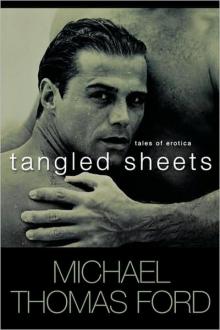 Tangled Sheets
Tangled Sheets Z
Z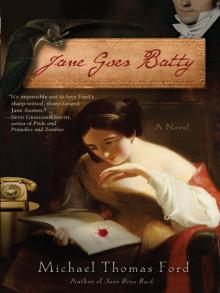 Jane Goes Batty
Jane Goes Batty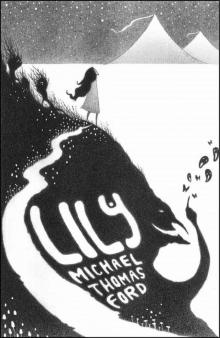 Lily
Lily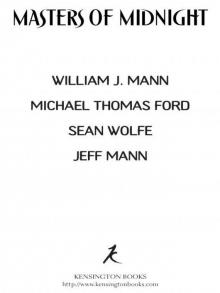 Masters of Midnight: Erotic Tales of the Vampire
Masters of Midnight: Erotic Tales of the Vampire The Road Home
The Road Home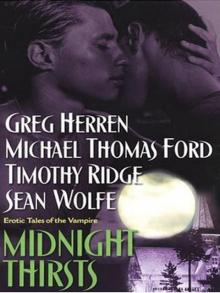 Midnight Thirsts: Erotic Tales of the Vampire
Midnight Thirsts: Erotic Tales of the Vampire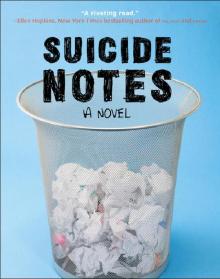 Suicide Notes
Suicide Notes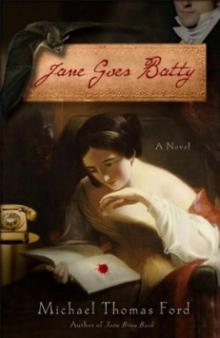 Jane Goes Batty jb-2
Jane Goes Batty jb-2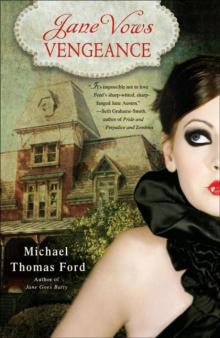 Jane Vows Vengeance jb-3
Jane Vows Vengeance jb-3 Jane Fairfax 3 - Jane Vows Vengeance
Jane Fairfax 3 - Jane Vows Vengeance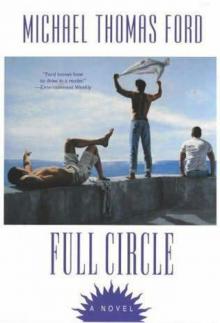 Michael Thomas Ford - Full Circle
Michael Thomas Ford - Full Circle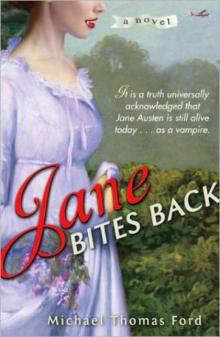 Jane Bites Back jb-1
Jane Bites Back jb-1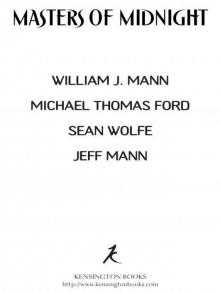 Masters of Midnight
Masters of Midnight